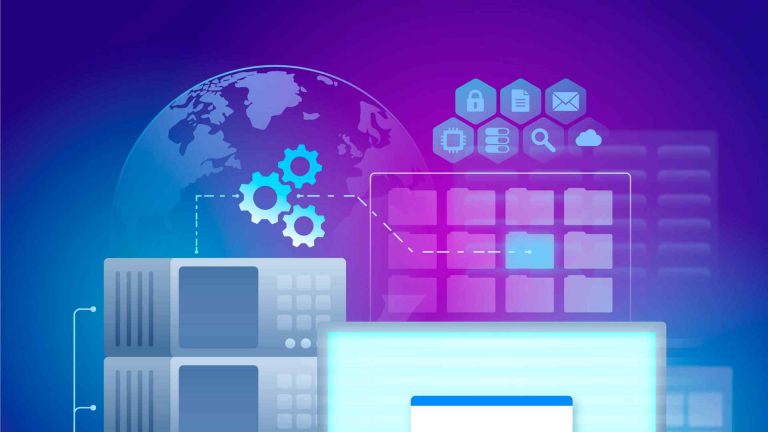Technology
The Cyberoam Administrator Training is a focused 2-day program designed to equip IT and network security professionals with the knowledge and hands-on skills to configure, manage, and maintain Cyberoam’s Unified Threat Management (UTM) appliances. This course provides a comprehensive understanding of key security features, including firewall rules, VPN configuration, intrusion prevention systems (IPS), content filtering, and real-time monitoring. Whether you're securing a small business or managing enterprise networks, this course will prepare you to deploy and maintain Cyberoam solutions effectively and securely.
Dell EMC ECS (Elastic Cloud Storage) is a software-defined object storage platform that provides organizations with the ability to store, manage, and analyze massive amounts of data. The Dell EMC ECS course is designed to provide students with a comprehensive understanding of the ECS platform, including its features, functionality, and best practices for deploying and managing the platform. The Dell EMC ECS course online provides students with a flexible, accessible, and industry-relevant way to gain the knowledge and skills they need to succeed in the field of object storage. By completing the course, students can differentiate themselves in the job market, expand their skill set, and prepare themselves for a career in object storage or related fields.
The DevOps course is a 3–5 day, hands-on training program designed for professionals aiming to improve collaboration between software development and IT operations teams. Built around real-world use cases, the course introduces participants to modern DevOps practices that enable faster, more reliable software delivery. Learners will explore the full DevOps lifecycle — from version control and continuous integration to automated testing, deployment, and infrastructure management. With guided labs and instructor-led sessions, the course provides practical exposure to industry-standard tools including Jenkins, Git, Ansible, Docker, and Kubernetes. By the end of the course, participants will have the skills and confidence to implement DevOps workflows, automate infrastructure, and contribute to scalable, high-performance delivery pipelines.
This 3–4 day immersive training program covers Docker and Kubernetes, the leading technologies for containerization and container orchestration. Participants will gain hands-on experience in creating, managing, and deploying containerized applications using Docker, and scaling and orchestrating those containers with Kubernetes. The course covers essential topics like container security, deployment strategies, networking, and monitoring, giving participants the skills needed to manage modern microservices-based applications. This course is designed for IT professionals looking to enhance their containerization and orchestration skills for cloud-native environments.
The EJB Training program is a 3-day intensive course designed for Java developers looking to build robust, scalable, and secure enterprise-level applications using Enterprise Java Beans (EJB) within the J2EE architecture. This hands-on course dives into the core components of EJB, including session beans, message-driven beans, transaction management, and security mechanisms, enabling you to build modular and distributed Java applications for enterprise environments. Whether you're integrating with databases, managing business logic, or building scalable APIs, this course will equip you with the skills to develop reliable, server-side components that are both reusable and performant.
The course of Flutter is designed for individuals who want to learn how to develop mobile applications for iOS and Android using the Flutter framework. Flutter is a popular open-source mobile application development framework created by Google, which allows developers to create high-performance, cross-platform mobile apps using a single codebase. Students have the opportunity to work on real-world Flutter projects, providing them with practical experience and portfolio pieces that can be used to showcase their skills to potential employers. They also have access to a network of Flutter professionals and fellow students, providing them with ongoing support and resources as they continue to learn and develop their skills. Upon completion of the course, students are prepared to pursue careers in Flutter development, including roles such as mobile app developer, mobile app architect, and mobile app consultant. They are equipped with the skills and knowledge needed to design and develop robust and scalable Flutter applications, ensuring that their code is efficient, maintainable, and effective. With a comprehensive curriculum covering the fundamentals of Flutter, as well as advanced concepts and best practices, students are equipped with the skills and knowledge needed to succeed in a variety of roles in the field of Flutter development.
The Forescout Administrator Training is an intensive 2-day program designed for network and security professionals who want to gain expertise in managing Forescout, a leading network visibility and control platform. This course will equip you with the skills needed to leverage Forescout for network visibility, policy creation, compliance enforcement, and incident response. You’ll learn how to deploy and configure Forescout to monitor network traffic, manage security policies, and respond effectively to security incidents. Whether you're new to Forescout or looking to expand your skills, this course provides the essential tools and techniques for securing and optimizing your network.
The Full Stack Development: Building Modern Web Applications course is a 60-hour intensive training program designed to equip participants with the skills needed to develop end-to-end web applications. This course covers both frontend and backend development, including database integration, authentication systems, APIs, and deployment on cloud platforms. Participants will learn how to build modern, scalable web applications that are secure, responsive, and user-friendly. From creating dynamic user interfaces with modern frameworks like React or Angular to managing server-side operations using Node.js, participants will gain practical experience in both client-side and server-side development. In addition to core programming skills, this course includes hands-on learning with database technologies (such as MongoDB or MySQL) and modern cloud deployment practices to help participants build and deploy applications in real-world environments. By the end of the course, participants will be able to develop full-stack applications that integrate frontend, backend, and database systems, ready to deploy on the cloud.
The Gen AI - Advanced Program is an 8-hour intensive training designed for technical professionals, architects, data scientists, and developers who wish to elevate their expertise in building and deploying advanced Generative AI solutions. This program delves deep into the complexities of Gen AI, enabling participants to design and implement custom AI models, optimize performance, and integrate them into real-world systems. Participants will gain hands-on experience in working with cutting-edge tools and frameworks for Gen AI, including advanced techniques in model tuning, multi-modal integration, and large-scale deployment strategies. Throughout the course, you'll explore how to deploy Gen AI solutions effectively in cloud environments, optimize for cost, performance, and scalability, and ensure compliance and ethical considerations are embedded into your solutions. By the end of the program, you will be ready to tackle complex AI challenges and apply Gen AI solutions to meet specific business needs.
The GenAI – Awareness Program is an 8-hour, non-technical learning session tailored for business leaders, managers, and professionals who want to understand the core concepts and real-world implications of Generative AI. Designed to demystify GenAI, the program introduces its applications, strategic opportunities, potential risks, and the importance of responsible governance. Participants will explore how GenAI is shaping the future of work and how it can be adopted thoughtfully across industries. No coding or deep technical knowledge required — just curiosity and a willingness to learn.
No posts found

















